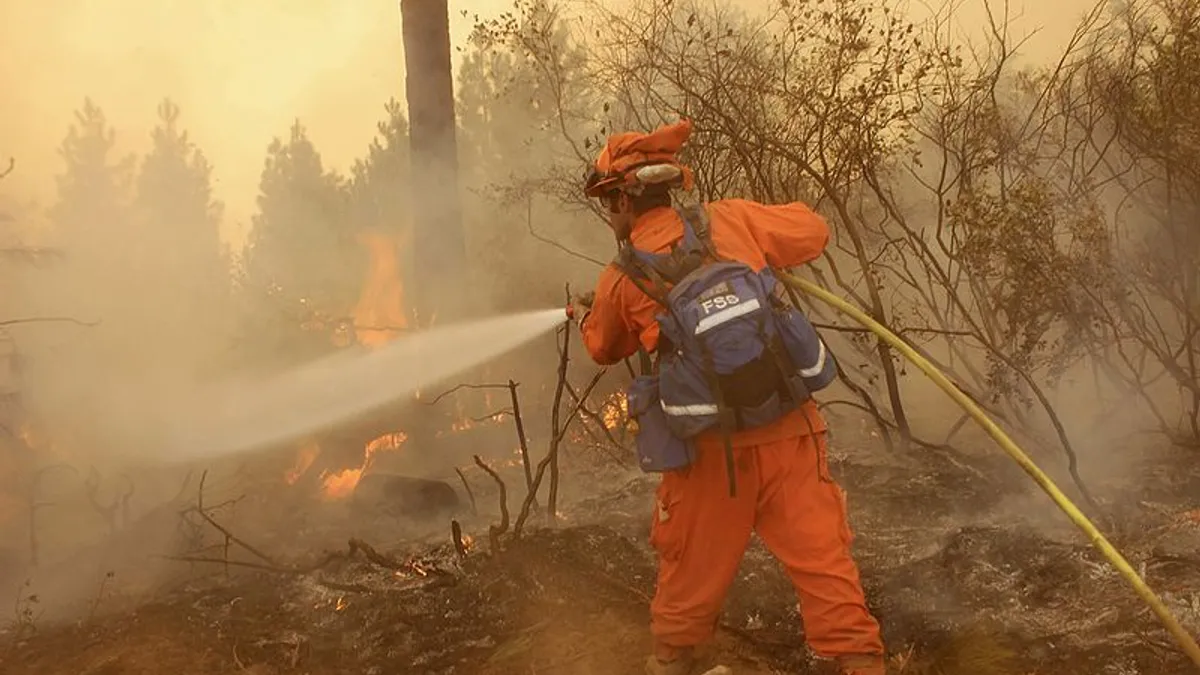Dive Brief:
- Employers in California must keep in mind labor codes and regulations around leave and worker safety and may need to make adjustments as wildfires affect working conditions across the state, the state’s Department of Industrial Relations said Sept. 3.
- "Requiring a worker to perform services in an area that is under a mandatory evacuation order may be in violation," the DIR wrote, warning employers not to retaliate against employees unable to work due to such an order. If an employee is laid off, discharged or otherwise retaliated against for a refusal, DIR said "employees shall have a right of action for wages for the time the employee is without work as a result of the layoff or discharge."
- The state also published heat illness prevention standards and worker safety guidance for those in wildfire regions. Regulations for the latter include identification of harmful exposures, communication, training and measures for controlling harmful exposure.
Dive Insight:
Emergencies can leave employers scrambling to figure out what the event means for employees and their customers. For California employers, disaster preparedness may mean creating a plan for coping with wildfires. OSHA has published guidelines to improve preparation for those who may be in high-impact areas as well as overall guidance on employer responsibilities.
The COVID-19 pandemic may present additional complications for wildfire response. Some employees may have already used up sick leave or paid leave, for example; this is where the Family and Medical Leave Act (FMLA) and California Family Rights Act (CFRA) come into play, experts say. "An employee may be eligible for leave if the employee or a family member develops a serious health condition due to the wildfires," attorneys for Jackson Lewis P.C. wrote in the National Law Review. "If the employee has paid sick leave time available, they could first take paid leave before taking unpaid leave under FMLA or CFRA."
Regarding wages, the California DIR said employees should be compensated "for all hours worked, which includes all time an employee is under the control of the employer, even if they are not working." For exempt employees, DIR said they may be "entitled to recover wages for the full week" depending on the circumstances.











